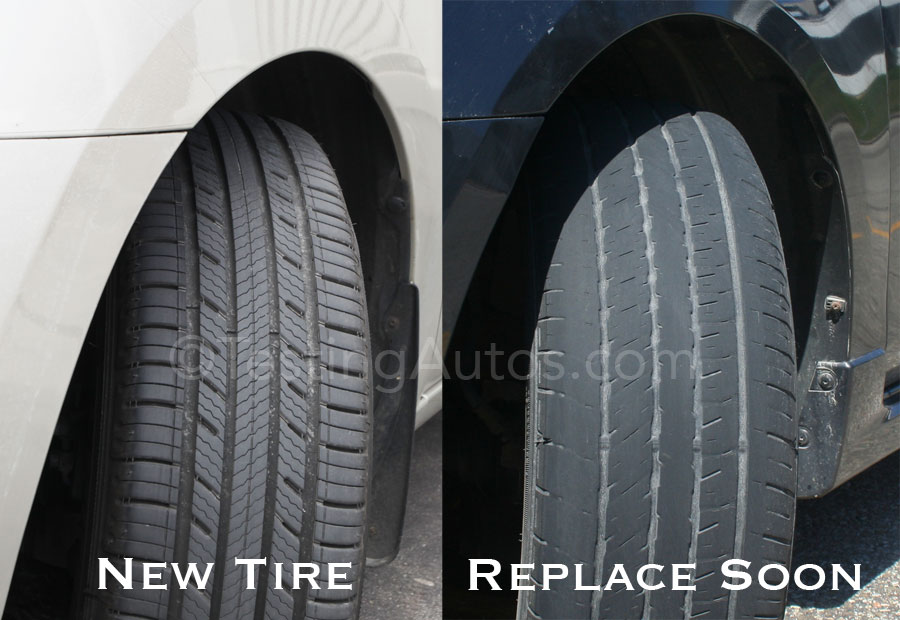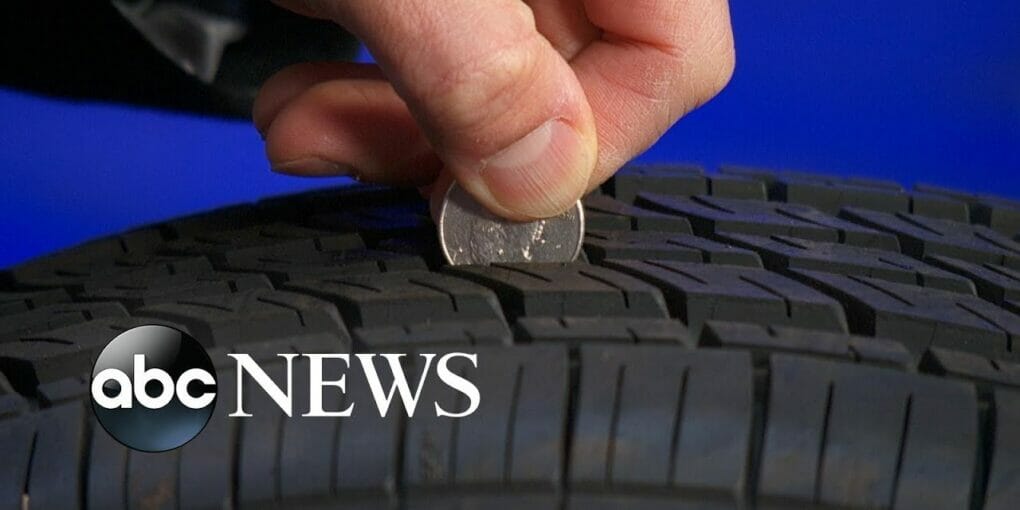How Often Do I Need to Get New Tires
If you’re like most people, you probably don’t think about your tires very often. But they are an important part of your car, and they need to be replaced periodically. So how often do you need to get new tires?
Most experts recommend that you get new tires every six years or so. But there are a few factors that can affect this number. For example, if you drive a lot, or if you live in an area with harsh weather conditions, you may need to replace your tires more frequently.
If you’re like most people, you probably don’t think about your tires very often. But did you know that they are one of the most important parts of your car? Your tires are what keep you connected to the road, and they play a big role in your safety.
So it’s important to make sure they are in good condition.But how often do you need to get new tires? The answer may surprise you.
Most experts recommend that you get new tires every 5 years or so. But that number can vary depending on a few factors. For example, if you drive a lot of miles each year, or if you live in an area with harsh winters, you may need to get new tires more frequently.
The best way to know for sure is to check your owner’s manual. It will have specific recommendations for tire replacement based on your car’s make and model. Or, if you’re unsure, ask a professional at your local tire store or auto shop.
They can help you figure out when it’s time for new rubber.
How to know when it's time for new tires
How Long Do the Average Tires Last?
It’s difficult to give an accurate answer to the question of how long do tires last since there are so many variables that can affect their lifespan. These include things like the type of tire, how often they’re used, the conditions they’re driven in, and even how they’re stored. With that said, the average lifespan of a tire is somewhere between 25,000 and 50,000 miles.
However, it’s not uncommon for some tires to last much longer than that if they’re well-maintained and only used occasionally. Ultimately, it really depends on a number of factors as to how long your particular tires will last.
How Often Should I Be Buying New Tires?
How often should I be buying new tires?This is a difficult question to answer, as it really depends on a number of factors – from the type of vehicle you drive, to your driving habits and even the roads you typically travel. However, in general terms, most experts recommend replacing your tires every 3-5 years – though this can obviously vary depending on the specific circumstances.
If you’re not sure when your tires were last replaced, it’s definitely worth checking them regularly for wear and tear. If you notice any bald spots or cracks forming, it’s probably time for a new set. Additionally, keep an eye on your tire pressure (use a reliable gauge to check this) and ensure that they are always inflated to the correct level.
Under-inflated or over-inflated tires can both cause problems and impact their lifespan.Of course, if you have any doubts about whether your tires need replacing or not, it’s always best to consult with a professional mechanic who can take a closer look and advise accordingly.
How Long Should a Set of Tires Last?
How long should a set of tires last? It depends on the type of tire, how you drive, and other factors. Here are some guidelines:
– Passenger car tires can last anywhere from 25,000 to 50,000 miles.
– SUV and light truck tires may last up to 75,000 miles.
– High performance tires generally have a shorter lifespan than regular passenger car tires.
They may only last 20,000 to 40,000 miles.
– All-season tires typically have a longer lifespan than summer or winter tires.Factors that affect tire lifespan include:
– Tire type – Some types of tires simply don’t last as long as others. For example, all-season passenger car tires tend to last longer than high performance summer tires.
– Driving habits – If you regularly drive in hot weather or do a lot of stop-and-go driving in traffic, your tires will wear out more quickly than if you stick to highways and cooler temperatures.
– Road conditions – Tires can wear down faster on rough roads with lots of potholes or debris.
– Vehicle weight – Heavier vehicles put more stress on their tires than lighter ones, so they tend to have shorter lifespans.
Caring for your tyres properly can help extend their life – here are some tips:
– Check tyre pressure at least once a month and before long journeys – underinflated tyres increase fuel consumption and wear out more quickly.
– Inspect your tyres regularly for any signs of damage such as cracks or bulges in the sidewalls – if you spot anything unusual, get it checked out by a professional as soon as possible.

Credit: www.testingautos.com
How Often Should You Get New Tires Mileage
If you’re like most people, you probably don’t think much about your tires. But they play a vital role in keeping you safe on the road. So it’s important to know how often to get new ones.
Most experts recommend replacing your tires every six years, regardless of mileage. But there are a few exceptions. If you do a lot of driving in harsh conditions (think off-roading or winter weather), you may need to replace them more frequently.
Of course, tread wear can vary depending on factors like tire type and inflation levels. So it’s always a good idea to inspect your tires regularly for any signs of wear and tear. If you see any bald spots or cracks, it’s time for new tires.
Bottom line: Don’t wait until your tires are completely worn out before getting new ones. By then, it may be too late.
How Often Should New Tires Be Rotated
If you own a car, it’s important to know when to rotate your tires. Tires should be rotated every 5,000 miles or so. This may seem like a lot, but it’s actually not that difficult to do.
There are a few things that you need to keep in mind when rotating your tires. First, you need to make sure that all four tires are the same size. Second, you need to make sure that the tread on each tire is even.
If one tire is significantly more worn than the others, it needs to be replaced.Third, you need to make sure that the pressure in each tire is correct. You can check this by using a tire pressure gauge.
Finally, you need to make sure that each tire is inflated to the correct level. You can find this information in your car’s owner’s manual.
When Do Tires Need to Be Replaced Tread Depth
When do tires need to be replaced? The answer is, it depends. In general, most passenger car tires can last anywhere from 25,000 to 50,000 miles.
But there are a number of factors that can affect how long your tires will last.One of the most important factors is tread depth. As your tires wear down, their ability to grip the road decreases.
That’s why it’s important to check your tread depth regularly and replace your tires when they get too low.How do you know when your tread depth is too low? There are a few ways to tell.
One is by using the “penny test.” Simply take a penny and insert it into the tire tread with Lincoln’s head facing down. If you can see all of Lincoln’s head, then your tread depth is less than 2/32″ and it’s time to replace your tires.
Another way to check tread depth is with a tire gauge. Most gauges have a small notch that corresponds to 2/32″. If the tire tread doesn’t reach up to this notch, then it’s time for new tires.
Of course, you don’t need to wait until your tread gets dangerously low before replacing your tires. If you do a lot of driving in hazardous conditions (like on icy or wet roads), then you may want to replace your tires sooner rather than later. The same goes if you notice any other signs of wear, like cracks in the sidewalls or uneven wear patterns.
Conclusion
The answer to how often you need new tires depends on a few variables. These include the type of vehicle you drive, how often you drive, the roads you typically travel, and your driving habits. That being said, most experts generally suggest replacing your tires every three to four years.


